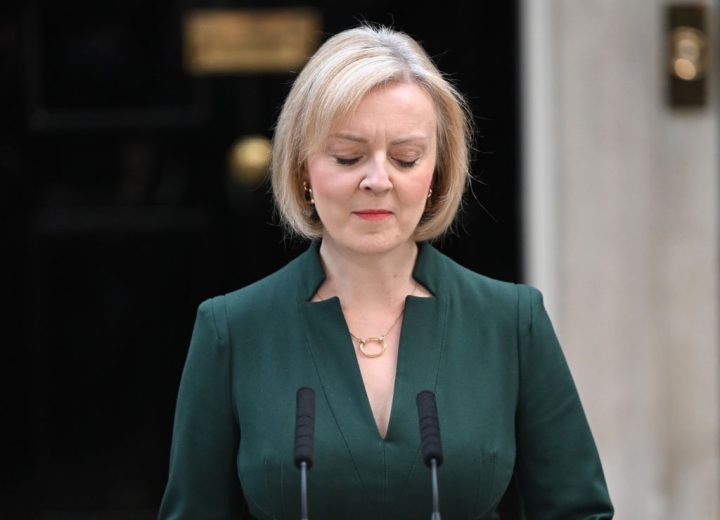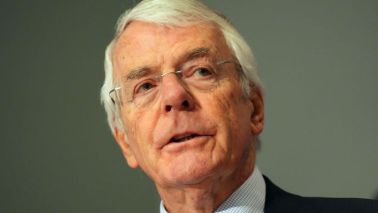‘I’m sorry for the damage and the loss. It was a scary time, and I’m sorry for that.’ Kwasi Kwarteng’s contrite apology on TalkTV last night was a striking contrast with the confidence, excitement and ambition which he and others exuded on taking up their new posts in Liz Truss’s government exactly one year ago today. Back then, there was talk from the likes of Truss’s chief of staff Mark Fullbrook about it being a ‘seven year premiership’. Yet it ended up being over in just seven weeks. How did it all go so wrong, so quickly?
Loyalty to the leader was prioritised over party unity
By the time the new prime minister walked up Downing Street to make her speech on that wet Tuesday afternoon, the course of her government had been set already. The economic climate had worsened throughout the summer leadership race, as Truss and Sunak slugged it out around the country. Energy bills were top of the political agenda, with costs set to soar by 80 per cent before the winter months. As she flew back on the plane from Balmoral that first day, Truss and her team were finalising her speech on the £180 billion package for families and businesses. The Energy Price Guarantee was expected to be the single biggest fiscal intervention in peacetime; bigger even than the Covid furlough scheme just two years earlier.
Truss had originally intended the energy scheme to be much more limited and targeted. However, by early September she had concluded that it was better to deal with this issue once and for all, rather than having to repeatedly revisit it.
Truss subsequently insisted that a cheaper, ‘targeted scheme was impossible given the urgency of the situation’ – despite targeted schemes having been created and implemented by government throughout 2022. It was hoped by her team that the energy package would give them the cover to implement her tax-cutting agenda; in the end, it was to fuel market fears about unfunded spending. Simon Clarke, a staunch supporter of Truss during her leadership campaign, has written of the broader shift in thinking that appears to have gone on in August 2022. Plans for a spending review on taking office to accompany her tax cuts were dropped. Clarke summarises it thus: ‘Her distaste for “abacus economics”, always present, won out over caution.’
Truss’s staff and cabinet appointments were largely completed by the time she actually became PM. In the fortnight before entering No. 10, she and aides had been based at the palatial splendour of Chevening, the Foreign Secretary’s country residence, drawing up lists of new roles. It was here that some of the incoming administration’s major faults were baked in. Of the 31 names attending Truss’s new cabinet, 30 backed her in the summer leadership race. Loyalty to the leader was prioritised over party unity, despite Truss winning less than a third of Tory MPs’ votes in the final parliamentary stage. The likes of Grant Shapps and Michael Gove were excluded. Rather than going out to defend her mini-Budget on the airwaves, they and other Sunak supporters were on the offensive at the October party conference.
‘She had half the parliamentary party against her from the start,’ one Trussite reflects. ‘It should have imbued her with a sense of caution. It didn’t.’ Another puts it more bluntly: ‘Better to have them inside the tent – they were going to knife her either way.’
Some of those MPs who did get jobs clearly ended up in the wrong ones. Wendy Morton can, truthfully, claim that ‘I never lost a vote when I was Chief Whip’ – but she did lose a prime minister after the farce of the fracking vote. There were tensions in the backroom team too. A number of her staff were unhappy about their Downing Street roles, as Truss’s existing Foreign Office team jockeyed with new arrivals. Fullbrook had not been Truss’s first, second or even third choice as chief of staff. Some aides think that a lack of government experience among senior staff could have helped them weather subsequent crises. ‘No. 10 was a step up’, admits one former special adviser.
Many mistakes were made in Truss’s 49 days in power. The mini-Budget was overly ambitious and mishandled. There was poor communications to reassure the markets and the voters. The political intelligence operation was found wanting too. But in retrospect it is clear that by the time Truss entered Downing Street on that hopeful September day, the seeds of her downfall had already been sown.







Comments